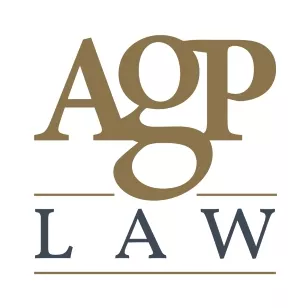On July 29, 2024, the Court of Justice of the European Union (CJEU) upheld the validity of the Council Directive (EU) 2018/822, commonly known as DAC6, which mandates the reporting of potentially aggressive cross-border tax arrangements.
This ruling affirmed the opinion of Advocate General Emiliou that DAC6 does not breach the principles of equal treatment or non-discrimination, as it treats comparable situations similarly and is not manifestly inappropriate.
Background of DAC6
DAC6 is an amendment to the European Council's Directive 2011/16/EU, which introduced the mandatory disclosure and automatic exchange of tax information related to cross-border arrangements among EU member states. Rooted in Action 12 of the OECD's Base Erosion and Profit Shifting (BEPS) project, DAC6 requires intermediaries, including lawyers and tax advisors, to report specific tax arrangements that may pose risks of tax avoidance.
The directive aims to improve tax transparency by obligating intermediaries or, if absent, taxpayers to disclose reportable arrangements. It serves as a tool for member states to receive timely information and respond to potentially harmful tax practices, promoting fairness and compliance within the EU tax system.
Legal Challenge by Belgian Association of Tax Lawyers
In 2020, the Belgian Association of Tax Lawyers (BATL), along with other parties, challenged the Belgian law that transposed DAC6 into national legislation, arguing that it violated the Charter of Fundamental Rights of the European Union and general EU law principles. The BATL contended that DAC6 disproportionately infringed upon the rights to privacy, legal certainty, and the legal professional privilege of lawyers.
The Belgian Constitutional Court referred these issues to the CJEU for a preliminary ruling, questioning the directive's compliance with fundamental rights and principles under EU law.
CJEU's Ruling: Key Findings and Implications
In its judgment, the CJEU concluded that DAC6 does not contravene EU principles of equal treatment, non-discrimination, legal certainty, or legality in criminal matters, and that its provisions are valid.
1. Equal Treatment and Non-Discrimination: The Court found that DAC6's reporting obligations, which extend beyond corporate tax matters, do not violate the principles of equal treatment or non-discrimination outlined in Articles 20 and 21 of the EU Charter of Fundamental Rights. The directive's scope, which includes various taxes and arrangements, was deemed appropriate given the objective to combat tax avoidance comprehensively.
2. Legal Certainty and Legality: The CJEU addressed concerns about the clarity and precision of DAC6's terminology, such as "intermediaries" and "reportable arrangements." The Court held that the directive's language is sufficiently precise to ensure compliance with legal certainty and legality principles, allowing intermediaries to understand their obligations and act accordingly.
3. Privacy and Legal Professional Privilege: A critical aspect of the ruling was the Court's stance on the interference with the right to privacy of intermediaries and taxpayers. The CJEU confirmed that the reporting obligations are clearly defined, limiting the scope of information to what is necessary for tax authorities. The Court also reiterated that the confidentiality between lawyers and clients enjoys specific protection under EU law, especially regarding legal professional privilege. The CJEU emphasized its earlier decision in the Orde van Vlaamse Balies case (2022), which found that DAC6's requirement for exempted lawyers to inform other intermediaries of their reporting obligations breached legal professional privilege. The ruling clarified that this protection specifically applies to lawyers as defined by EU law and does not extend to other professionals authorized to offer legal representation.
4. Proportionality and Justification: Finally, the CJEU assessed whether the reporting requirements constituted a disproportionate interference with privacy rights. It determined that the obligations are proportionate and justified, as they are essential for ensuring the effectiveness of tax administration and compliance within the EU. The Court acknowledged that while some privacy rights are impacted, the overarching public interest in transparency and combating tax avoidance outweighs these concerns.
Conclusion
The CJEU's ruling reinforces the EU's commitment to fostering transparency and accountability in tax matters through DAC6. By upholding the directive's validity, the Court supports the continued operation of reporting mechanisms that help detect and deter aggressive tax planning strategies within the EU.
This decision provides legal clarity for intermediaries and taxpayers, affirming that DAC6 remains a key element of the EU's broader strategy to enhance tax cooperation and fight tax evasion. The judgment also highlights the careful balancing act between upholding fundamental rights and achieving the objectives of EU tax law, setting a significant precedent for future tax governance within the Union.
The full decision of the CJEU in Case C-623/22 can be found here.
The content of this article is intended to provide a general guide to the subject matter. Specialist advice should be sought about your specific circumstances.



